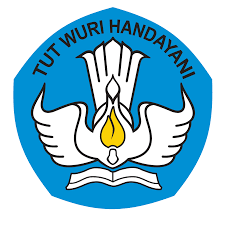Indonesia’s Ranking in PISA 2022 has Increased by 5 to 6 Positions Compared to 2018

KEMENDIKBUDRISTEK-The Ministry of Education, Culture, Research and Technology (Kemendikbudristek) released the results of the Program for International Student Assessment (PISA) 2022 study on Tuesday (5/12/2023). The results of PISA 2022 show that Indonesia’s literacy learning outcome ranking has increased by 5 to 6 positions compared to PISA 2018. This increase is the highest achievement in terms of ranking (percentile) in the history of Indonesia’s participation in PISA.
Minister of Education, Culture, Research and Technology (Mendikbudristek), Nadiem Anwar Makarim, said that this increase in ranking shows the resilience of the Indonesian education system in overcoming learning loss due to the pandemic.
“For reading literacy, Indonesia’s ranking in PISA 2022 rose 5 positions compared to before. “For mathematical literacy, Indonesia’s ranking in PISA 2022 also rose 5 positions, while for scientific literacy, it rose 6 positions,” explained Nadiem in Jakarta on Tuesday (5/12/2023).
Indonesia’s improved position in PISA 2022 indicates good resilience in facing the Covid-19 pandemic. The average international reading literacy score in PISA 2022 fell by 18 points, while Indonesia’s score decreased by 12 points, a decline in the low category compared to other countries.
Director for Education and Skills, Organization for Economic Cooperation and Development (OECD), Andreas Schleicher, praised the resilience of the Indonesian education system, especially during the Covid-19 pandemic. According to him, the last few years have been a very difficult time. However, Indonesian students generally succeeded in maintaining the quality of learning outcomes in their PISA scores.
“We congratulate Indonesia for successfully maintaining the quality of learning outcomes. “The PISA results also show that teachers in Indonesia provided good support for students during the pandemic,” said Andreas proudly.
Indonesia has participated in PISA since it was first held in 2000. Participation in PISA allows Indonesia to monitor the quality of its education over time and compare it with other countries.
PISA is administered every three years by the OECD to measure reading, mathematics and science literacy in 15-year-old students. In 2022, PISA will be participated by 81 countries, consisting of 37 OECD countries and 44 partner countries. Apart from using PISA, since 2021, Indonesia has implemented a National Assessment/Asesmen Nasional (AN) to map the quality of education in each school and region more comprehensively.
Why is Indonesia’s PISA Ranking Rising?
In his presentation, the Minister of Education and Culture stated that the relatively small learning loss reflects the resilience of teachers supported by various pandemic management programs from the Ministry of Education and Culture. The first reason relates to online access. “Internet quota assistance was provided to more than 25 million students and 1.7 million teachers so they could access materials and carry out learning online,” said Nadiem.
Another factor that pushed Indonesia’s ranking up in PISA 2022 was the teacher training provided by the Ministry of Education and Culture through the Merdeka Mengajar Platform, accompanied by online and hybrid learning materials.
“Various learning materials were created to help teachers carry out learning during the pandemic. “This includes “Learning from Home” material on TVRI, diagnostic assessment modules to measure literacy and numeracy, literacy, and numeracy learning modules,” explained Nadiem.
A breakthrough that is no less important is the implementation of the Emergency Curriculum, which simplifies the curriculum material so that teachers can focus on deeper learning, especially strengthening students’ literacy and numeracy.
“Simplification of curriculum materials is effective in mitigating learning loss. “Schools that use the Emergency Curriculum experience 1 month of learning loss, compared to 5 months in schools that fully implement the 2013 Curriculum,” added Nadiem. Simplifying this material is one of the main principles in designing the Independent Curriculum.
With this principle, the Merdeka Curriculum reduces mandatory material in various subjects so that teachers have more time to use in-depth, interactive and project-based learning.
According to Nadiem, the Merdeka Curriculum supports teachers in conducting diagnostic and learning assessments appropriate to each student’s abilities. Independent Curriculum textbooks also contain more activities designed to sharpen reasoning skills. “Thus, learning with the Independent Curriculum is no longer oriented towards delivering material, but honing students’ competence and character,” he stressed.
Andreas Schleicher from the OECD also expressed optimism about the Independent Learning movement. “The Independent Learning Movement initiated by the Ministry of Education and Culture has put Indonesia in the right direction towards improving the quality of education.”
Researcher for the Innovation Program for Indonesian School Children (INOVASI), Rasita Purba, said that based on the results of the INOVASI study, teachers who implemented regular diagnostic assessments and adjusted learning according to student’s abilities and needs recovered their learning results three months faster.
“Furthermore, a curriculum that emphasizes essential competencies and gives teachers autonomy to adjust the curriculum and learning results in twice faster learning recovery,” concluded Rasita.
Press conference
Bureau of Cooperation and Public Relations
General Secretariat
Ministry of Education, Culture, Research and Technology
Twitter: twitter.com/Kemdikbud_RI
Instagram: instagram.com/kemdikbud.ri
Facebook: facebook.com/kemdikbud.ri
Youtube: Indonesian Ministry of Education and Culture
Questions and Complaints: ult.kemdikbud.go.id
Get complete information about Merdeka Belajar via http://merdekabelajar.kemdikbud.go.id/
#Polibatam #Vocation #PISA2022

